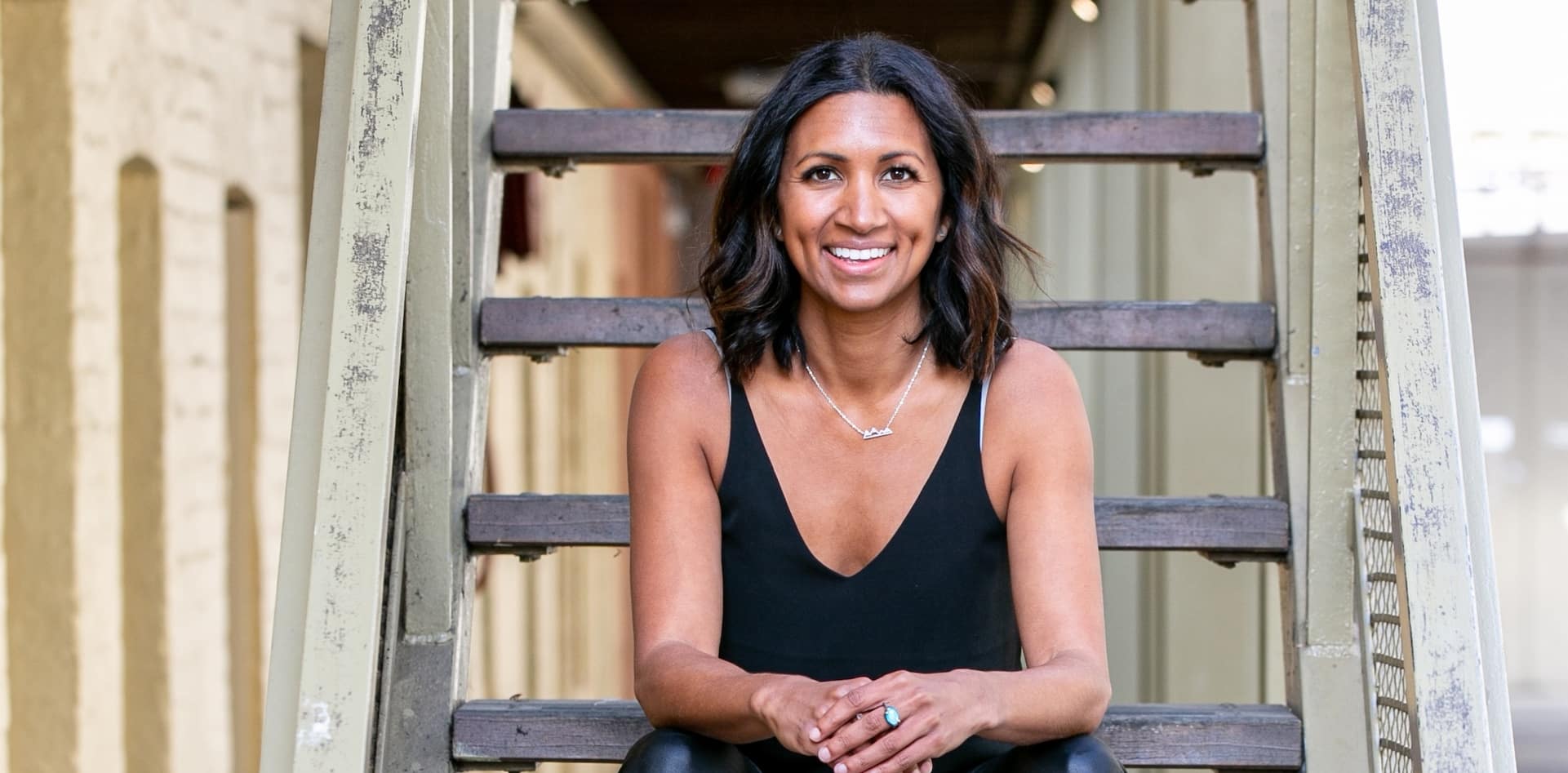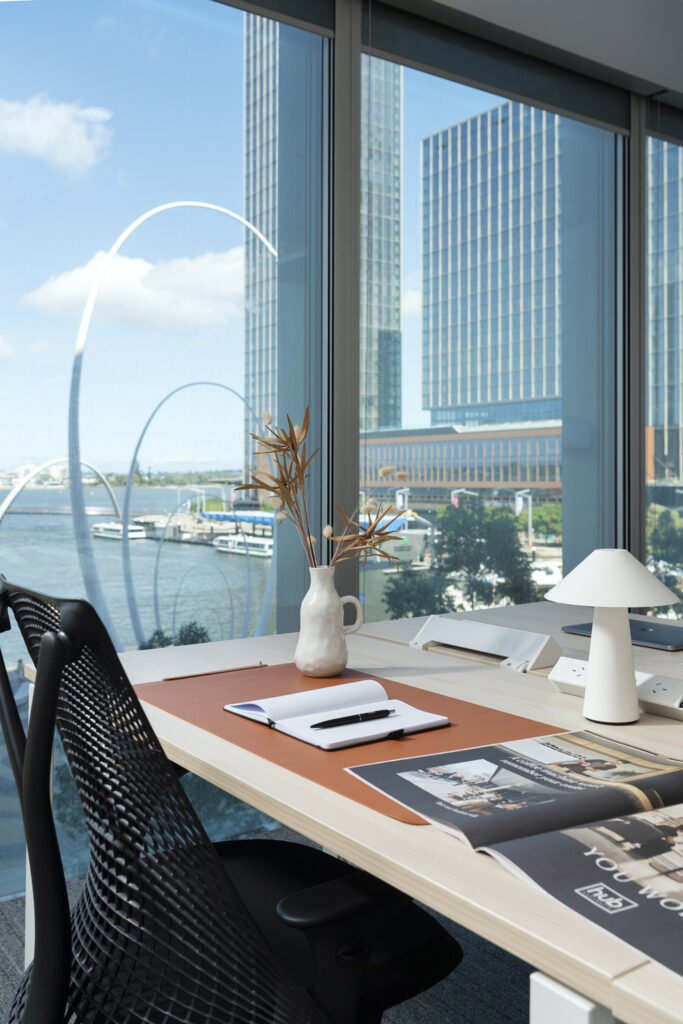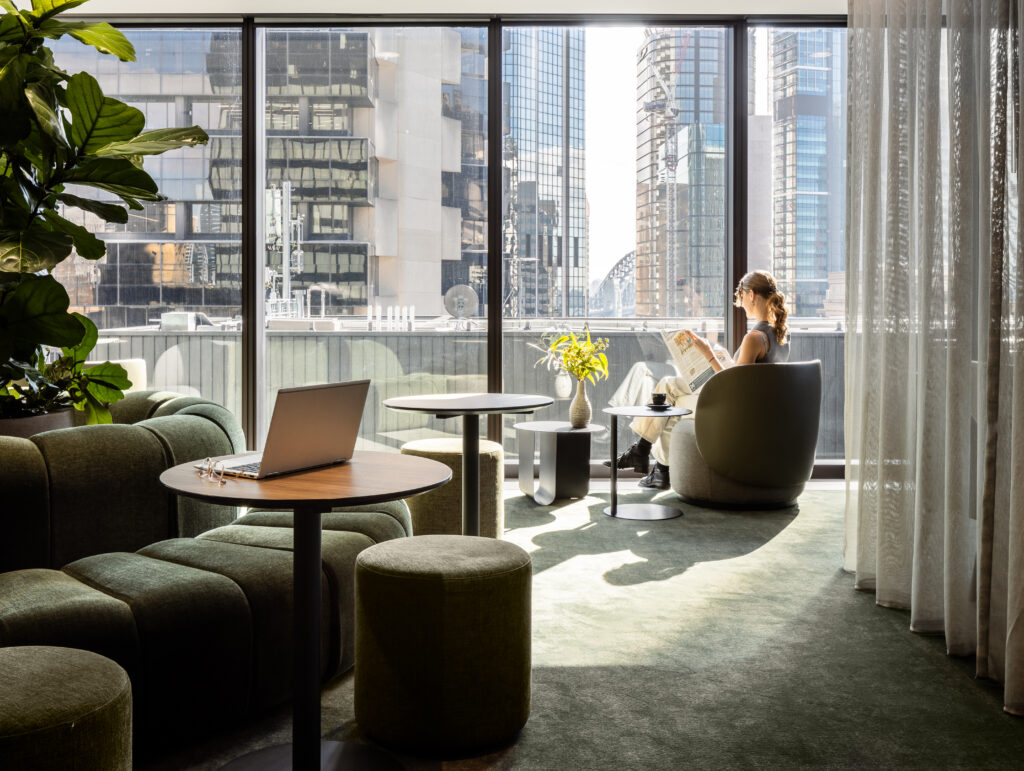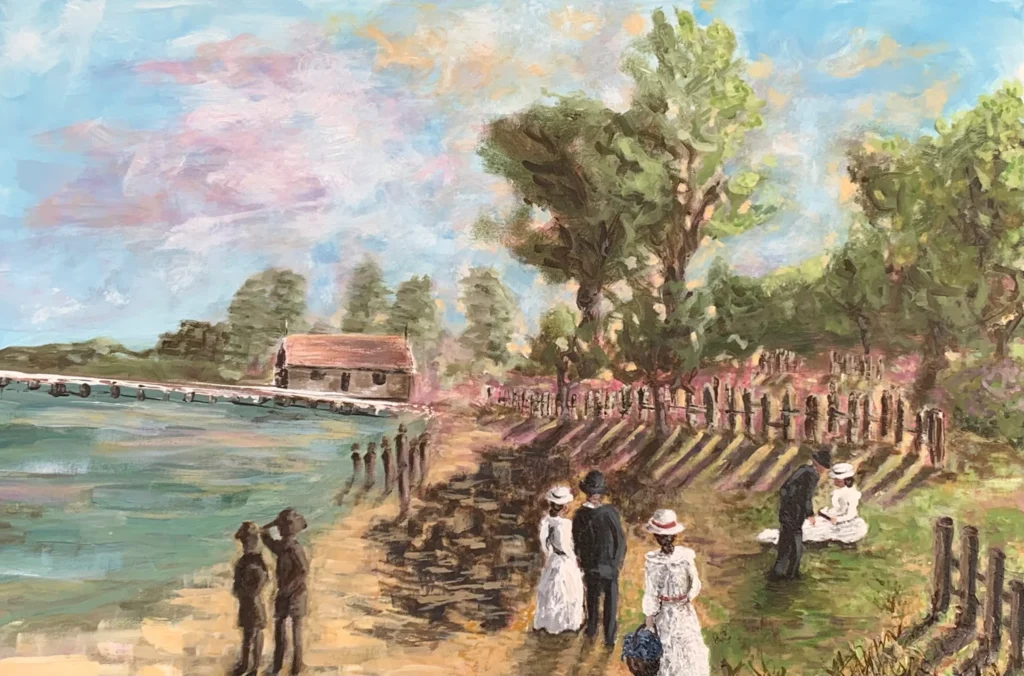A cancer diagnosis instantly upends a person’s world in every way. But work often remains an important part of their lives, as it gives them some form of normality, purpose, and security.
The struggle, though, is when leaders and teams lack the practical know-how in supporting employees affected by cancer, whether as patient or carer. And this is where MyMuse comes in.
Nikki Shah, founder and CEO of MyMuse, was our 2023 Flexi Impact member, who is now based at Hub Customs House. She tells us more about what MyMuse does – and the personal tragedy behind it.
Sobering statistics in Australia
According to the Cancer Council, one in two Australians will be diagnosed with cancer in their lifetime. That’s 50% of the population.
When that lens is applied to the workplace, it means even if an employee at your work isn’t diagnosed, they would probably know somebody that is. Or they’d be a carer for somebody that is.
And yet, the lack of resources for workplaces to support people affected by cancer – whether as the patient or carer – is shocking.
Nikki Shah, founder and CEO of MyMuse, puts it in perspective. “The mental health statistics are 1 in 5 Australians, and we’ve got so much focus on mental health within the workplace, which is great.
“But cancer is a statistic that’s way beyond that,” she continues, “and we’re still not doing much about it within the workplace.
“And more and more people are getting diagnosed – within the working age as well. Which means a lot of them would need to continue working while going through treatment or while caring for somebody, and we need to find ways to support them.
“They can’t just take six months off and come back when – as a lot of bosses and managers put it – they’re ‘back to themselves’,” she says, adding that when somebody is diagnosed with cancer, “they’ll never be back to themselves.”
And Nikki, for one, understands that all too well.
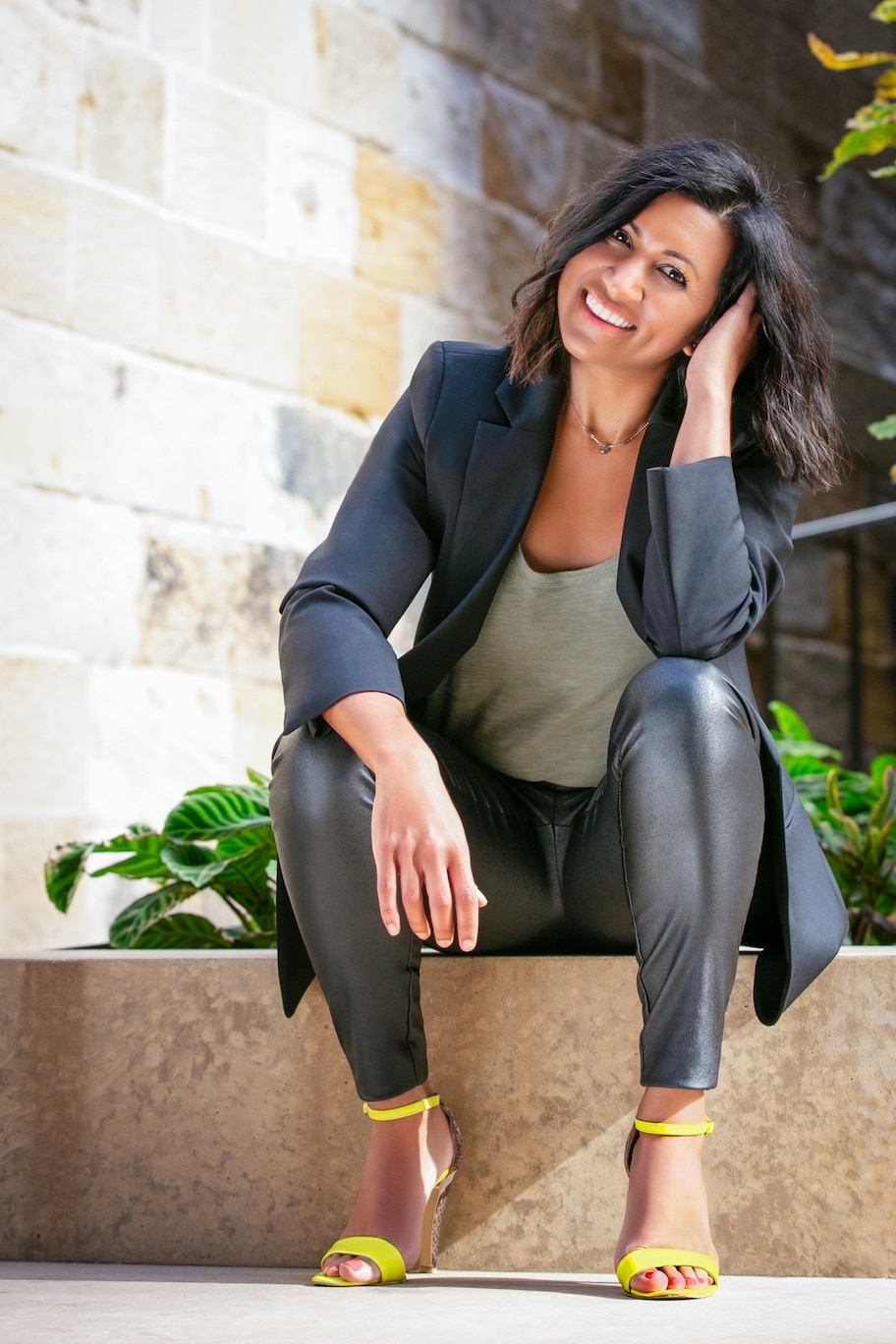
Nikki Shah, founder and CEO of MyMuse
The catalyst for MyMuse
In January 2019, Nikki’s late partner passed away from cancer. Two months later, she resigned from her job – and by November the same year, she’d launched MyMuse.
“My late partner was diagnosed two years before, and I was working full time,” she recalls. “My company was extremely supportive, as my boss at the time had been diagnosed with cancer themselves previously. So they really understood what we were going through.”
But when Nikki moved to another organisation that had headhunted her, she soon experienced that disconnect and lack of support within the workplace firsthand.
“I was completely transparent with them from the start. I told them that [my late partner] was going through cancer treatment, and we didn’t know what it was going to look like or how long it was going to go on for. There was a lot of uncertainty around.
“They told me not to worry, and that they’ll support me. Which they did initially.”
But then the cancer kept on going and the treatments kept on coming. Her late partner was soon told that he was terminal, and Nikki’s company really struggled with how to support her.
“They didn’t know what to say, what to do, how to support the team, how to talk to the team about my situation,” she says, “and even how to talk to the clients that I was working with.
“It became really hard. I was searching for ways and resources to help them and support them, but there was nothing.”
What made things even trickier was the fact that Nikki was on a sponsorship visa at the time. And if she walked away from her job, she’d have to walk out of the country as well.
Then her late partner passed away, and things reached a breaking point.
The final straw
“I remember telling my team that I was going to be taking two weeks off, and that I was going to be at the funeral,” Nikki says. “And on the day of the funeral, when I was in the car behind the hearse, with his coffin in front of me, I got a phone call.”
It was from one of Nikki’s candidates – she was in recruitment at that time – who was frustrated because they couldn’t find the building where their interview was held.
“This candidate was screaming down the phone,” Nikki shares, incredulously. “And I remember just thinking, why is this even happening? Somebody was meant to have taken my workload off me. Why am I getting this phone call? And on the day of the funeral too. I think that was the tipping point.”
By then, Nikki knew it wasn’t an environment that she’d want to work in anymore. Life had changed. And her priorities had changed.
“Nobody in this world should have to go through even a tenth of what I’ve had to go through in terms of an employer who, wasn’t unsupportive – but just didn’t know the right things to do.
“And looking back now, I can see all the things that could have been done better. Which is why I believe that an employer should never have to wait until this situation arises, and then just hope they know what to say and how to support their employee.”
Nikki adds that presently, most companies assume they and their managers possess the competence to navigate such situations. However, given the absence of specific training or onboarding initiatives, there’s no assurance of their preparedness.
And without firsthand experience with cancer, comprehending the knowledge and skills required remains a formidable challenge – and risk to the organisation.
“Get the training done now,” Nikki stresses. “Know what to do when this situation arises. Because it is going to arise.”
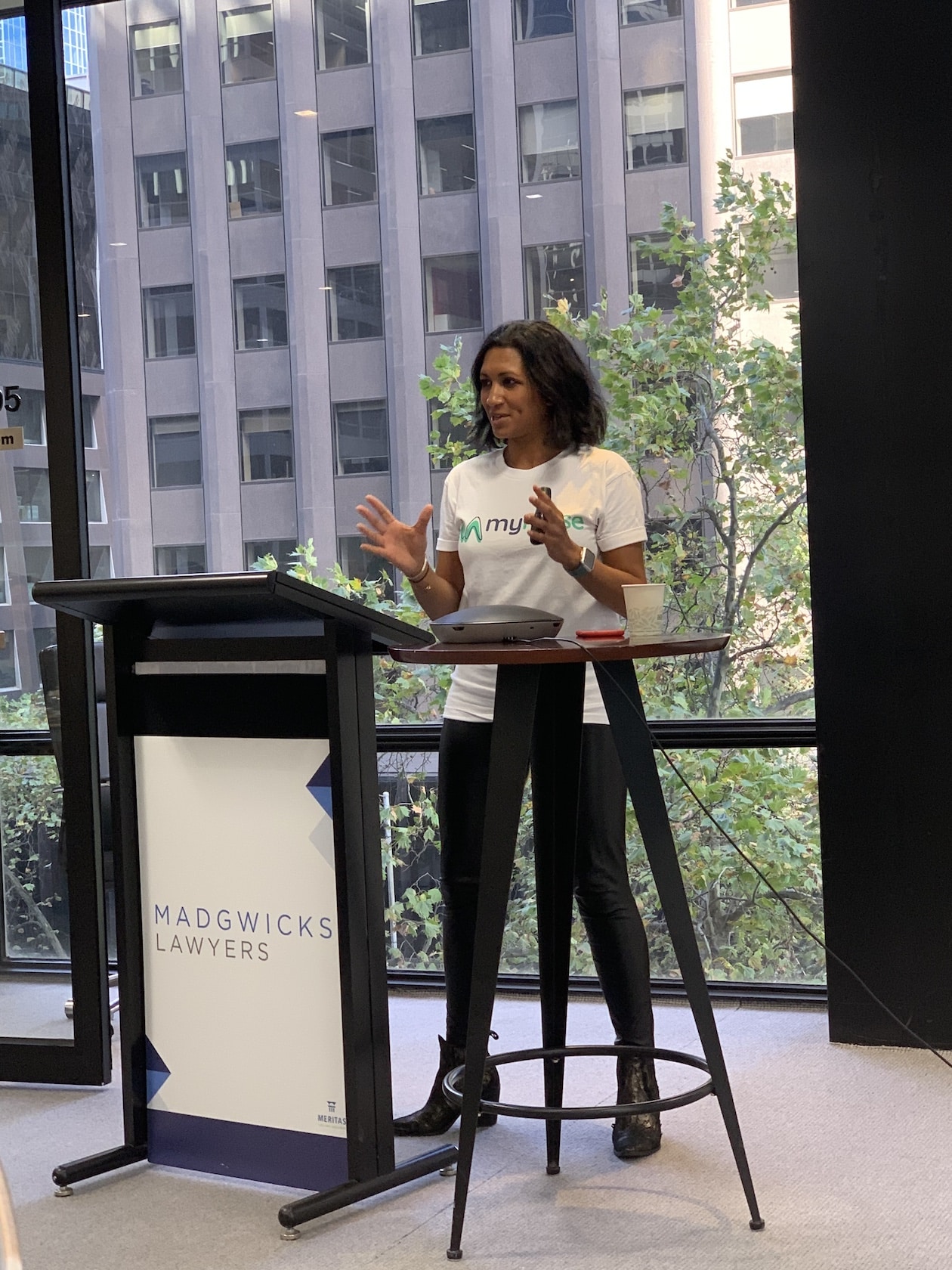
Nikki presenting in one of their workshops
Empowering businesses to do better
Since 2019, MyMuse has worked with all types of organisations to help them navigate conversations around cancer. From micro businesses to large multinationals, MyMuse helps them support employees affected by cancer by developing training sessions or consultancy programs tailored to the company’s needs.
Organisations can choose to engage MyMuse in various ways: from a one-hour lunch-and-learn, to a full-day session, to an annual training for new leaders and team members. They also provide reactive training and consulting to organisations that have a current employee affected by cancer.
As Nikki puts it, “There’s no one-size-fits-all. It really is based on what the organisation needs.”
Their programs are put together by the team of specialists at MyMuse, which includes HR specialists, lawyers, psychologists, oncologists, palliative care specialists, grief specialists, and allied health professionals – just to name a few.
Typical sessions on work and cancer will cover topics such as:
- The legal framework
- How to talk to an employee and their colleagues about cancer
- Making reasonable adjustments
- Managing an employee’s return to work
- Supporting a carer for someone with cancer
Working closely with the leadership, People & Culture, Wellbeing/Wellness, D&I and/or HR teams – sometimes even the entire company – MyMuse will take into account the overall culture, plus the support that the company’s able to physically and financially provide for the individual while developing their programs.
Nikki adds that it’s also important to support the entire team, because the entire team will be affected one way or another.
She cites an example: “The patient or the carer won’t just be taking one day off work during treatment. They might have to take random days off that are sporadic and may not be planned for. And what this means is that the team may have to pick up where that individual isn’t able to work.”
Leaving a profound impact
One of the frustrations in Nikki’s journey? Seeing organisations that she knew needed the programs – because their employees were affected by cancer – choose not to do it due to budget constraints.
“Learning about organisations with employees impacted by cancer and their approach to support those employees can be eye-opening,” she says.
“While some efforts may seem supportive, there’s often a realisation that much more could have been done without significant financial impact on the business, with the right support and training.
“And actually, the impact on organisations’ return on investment has been profound,” Nikki adds. “Each business partnered with MyMuse has unequivocally proven that, without our assistance, they would have faced the risk of losing valuable staff or leaving them feeling unsupported.”
So, what keeps Nikki going? “My late partner, and my mum,” she says. “They will always be my muse, and push me to keep on going and keep doing what I do.”
That, and knowing that she’s able to do something that she loves that is changing people’s lives.
“On Christmas day,” Nikki shares with a smile, “I received a number of text messages from individuals who work for companies that had engaged us to help support them through their cancer treatment or being a carer. And they told me that the year wouldn’t have been what it was if it wasn’t for what we’d done.
“That brought tears to my eyes, knowing that we’ve made that much of a difference,” she says. “It makes it all worthwhile.”
Nikki started her journey with Hub as our 2023 Flexi Impact member. And when her complimentary 12-month membership ended, she decided to sign up for our Flexi Memberships. Here’s what she loves about Hub:
“I’m based out of Hub Customs House in Sydney and I just love it. It’s a really beautiful space, very well thought out in terms of the layout, and I love the natural light we get in this space as well.
It’s nice to be able to have an office space that’s away from home and be within a city environment. A place where I can meet up with my clients and actually have them come to the meeting rooms.
The Flexi Membership works for me because I’m usually in the space only three days a week. Being able to use other Hub office spaces when I go interstate has been great. And all the Hub staff have been absolutely fantastic and so welcoming.
There’s plenty of other flexible working spaces around Sydney, but there’s nothing that I feel really lives up to this.”
Visit MyMuse’s website to discover how they can help your company transform cancer management in the workplace.
Want to learn more about our Flexi Memberships – or keen to experience Hub workspaces for yourself? Get in touch today.
